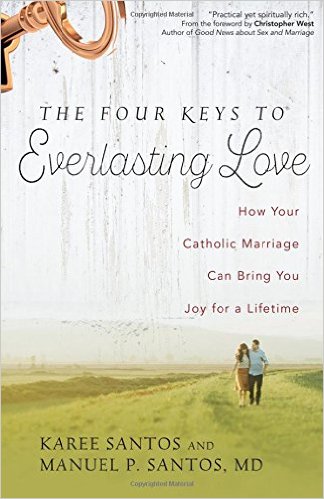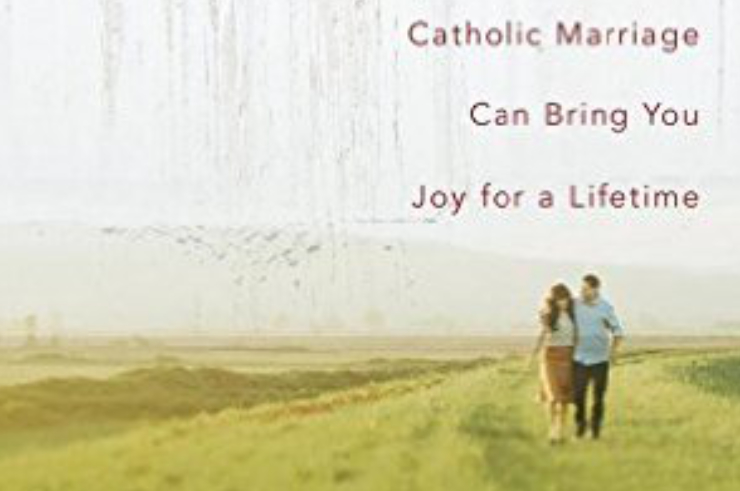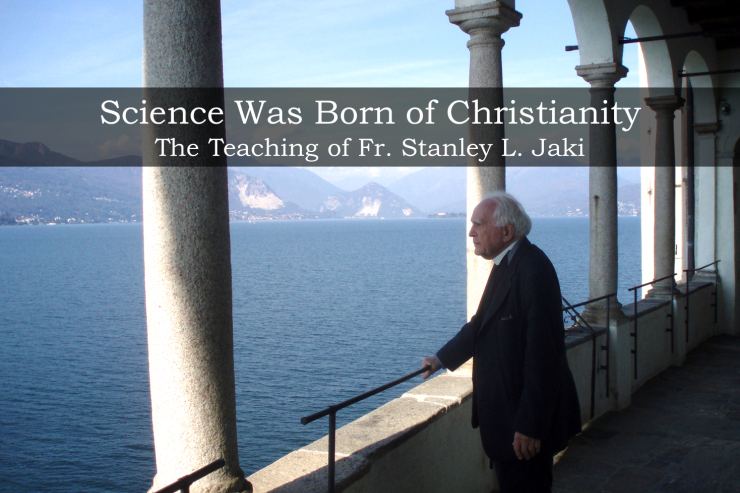 Most of us didn’t receive an instruction manual when we became engaged. We likely participated in the required pre-Cana classes at our parish and completed the FOCUS test. But that may have been the end of our premarital instruction. Once the wedding was over and the honeymoon phase fizzled down, we were left with a marriage—a lifetime. Suddenly the pomp and circumstance dissolved into reality, and we may have felt shocked and clueless as to how to handle the inevitable ups and downs that marriage entails.
Most of us didn’t receive an instruction manual when we became engaged. We likely participated in the required pre-Cana classes at our parish and completed the FOCUS test. But that may have been the end of our premarital instruction. Once the wedding was over and the honeymoon phase fizzled down, we were left with a marriage—a lifetime. Suddenly the pomp and circumstance dissolved into reality, and we may have felt shocked and clueless as to how to handle the inevitable ups and downs that marriage entails.
Fortunately, a new marriage primer exists, thanks to Dr. Manny and Karee Santos. For those of us who are engaged, newlyweds, or approaching our tenth, twentieth, or fiftieth anniversaries, there is sure to be a kernel or two of timeless wisdom that we can glean and incorporate into our own spousal partnerships. As I read their book, I found myself wishing (several times) that Ben and I had been given something like this before we began our covenant of marriage together.
Based on St. John Paul II’s Theology of the Body, Dr. Manuel Santos and his wife, Karee, take the four keys to everlasting love and turn them into practical tips for married couples on how to handle most circumstances that are sure to arise throughout a shared lifetime. The keys include free, total, faithful, and fruitful. In each section, readers are offered anecdotes that pertain to stewardship, work, fertility, prayer, sex, handling in-laws, etc. These are followed by Dr. Santos’ diagnosis on what could be contributing to each couple’s tension or division. Finally, the Santos offer conversation starters and action plans that couples can use for discussion, reflection, and prayer.
As a wife of nearly ten years and a mom of two girls with special needs, I was pleased to read The Four Keys to Everlasting Love. The two most profound and pertinent sections for where my husband and I are in our marriage pertained to in-laws and communication. Sadly, communication (meaning dialogue) is often neglected between spouses who are raising children with special needs. These two chapters made me consider ways we could improve our communication so that our marriage will thrive, especially in terms of active and reflective listening. How many of us could honestly admit that we aren’t the best listeners in our marriage? The Santos’ approach, however, is amiable and relevant. As you read the book, it is as if they are walking this journey along with you and your spouse.
I was especially delighted to see the chapter on welcoming and raising children who have special needs. As Catholics, we acknowledge that, to claim the pro-life label, we must accept and embrace children who may be atypical psychologically, developmentally, or in any capacity that differs from their developmental peers. But most of us don’t consider the possibility that our own children might not be the proverbial picture-perfect icons that society presents to us. People tell us to pray for a “happy and healthy” baby, but the Santos remind us that we should embrace our children as they are, flaws and foibles and all. Caring for kids with extra needs is definitely challenging, but the Santos’ deep understanding of the gift of all children is evident, not only in this chapter, but throughout the entire manuscript.
The Santos provide a comprehensive, easy-to-read manual on marriage that applies to engaged couples, newlyweds, or spouses who have been seasoned in marriage for many years. The Four Keys to Everlasting Love could easily be used for marriage retreats, in couples study sessions, or through marriage enrichment adult formation classes through parishes or at the diocesan level. But above all, read the book with your spouse and discuss each chapter as you complete it. Chances are, you’ll both end up with new insights about each other and deepen your love in the process.















